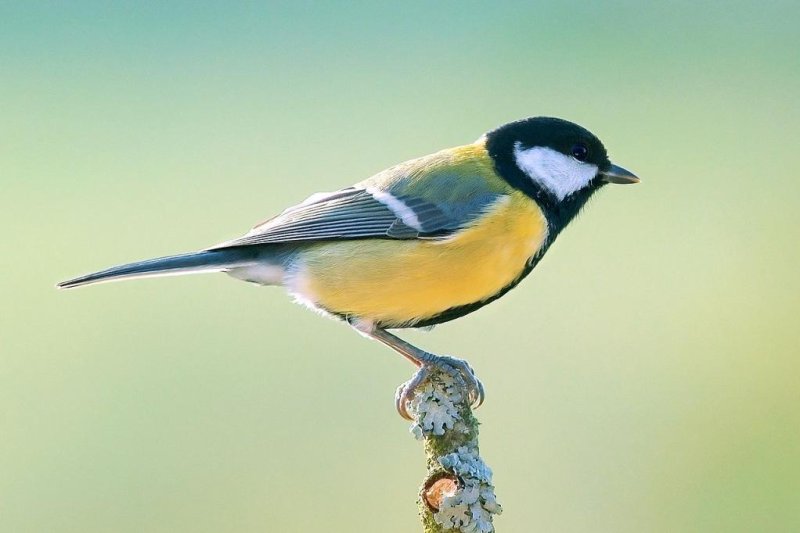A great tit perches. Photo by Luc Viatour/Flickr.
LUND, Sweden, Dec. 9 (UPI) -- Great tits, a species of passerine birds found in Europe and Asia, are known mostly for their versatile diet and impressive intelligence. Now, a new study proves female great tits have memory superior to their male counterparts.
Previous studies have noted the species' propensity for insight learning -- the ability to acquire new skills through insight instead of trial and error. Anders Brodin and Utku Urhan, researchers at Lund University in Sweden, were able to show that females had better spatial understanding and learning abilities.
Unlike other species of tits, great tits are not hoarders. But they are known to observe the hoarding activities of other birds and then raid food stashes when possible. They also have been observed using tools to hunt for food, including the employment of a pine needle to extract larvae from small holes in trees.
To compare intelligence differences between the sexes, researchers Brodin and Urhan allowed both male and female great tits to watch another tit species forage for, find and hoard food. Males were able to locate hiding places only 15 percent of the time, whereas females located food stashes 40 percent of the time.
The biologists suggest that because the females are forced to play second fiddle when it comes to shared meals, evolution may have pushed them to become more enterprising in their feeding strategies.
"Whereas the males therefore have a more even and reliable food supply, lower-ranking females have to supplement their food by pilfering the stock piles of others," Brodin explained in a press release. "Therefore a good memory of where caches are to be found could go a long way to still their hunger."
"Such ability could also be helpful to the female birds in a broader sense," added Urhan. "Females could choose to ignore pieces of food they find when a male is nearby. If she returns later when the male is not close, she decreases the risk of getting the food item stolen by the male."
The study was published Tuesday in the journal Behavioral Ecology and Sociobiology.















